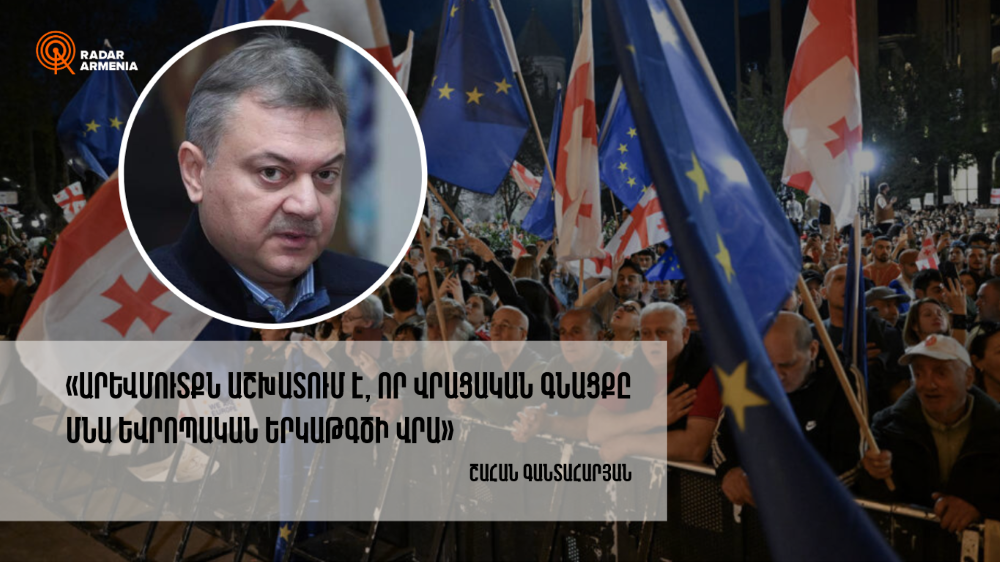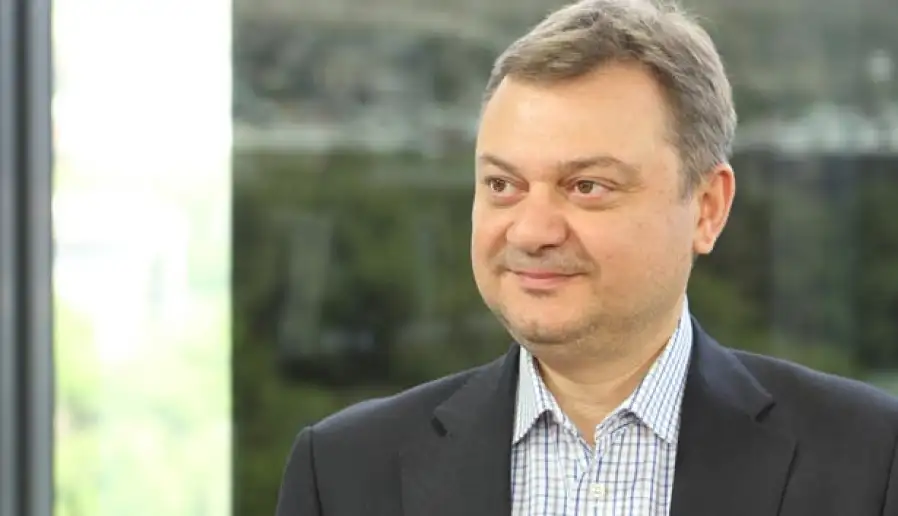Radar Armenia's interlocutor is Shahan Gantaharyan, an international scholar.
- The United States has declared that Georgia's western orientation is at risk, condemning the "foreign influence" law put forward by the Georgian Parliament. On the one hand, Georgia has received the status of an EU candidate, on the other hand, such a law is being discussed in Parliament. Is Georgia going in the right direction on the way to European integration?
- Georgia is experiencing a crisis in the east. Tbilisi chose the eastern direction; now, it is trying to balance its position, feeling the consequences of that choice. The territorial integrity of Georgia has been violated. The consequences of the Russian-Georgian war, in fact, continue, and now Tbilisi is trying to continue moving in the direction of the European Union without antagonizing Russia. This balance is difficult to achieve. There is a contradiction between the government and society, the clear evidence of which is the mass demonstrations. This clash of directions is taking place throughout the region, including in Georgia. There will be shocks and time-outs, but I think the Georgian train to the EU will continue its journey with some stops. The West will work to keep that train on the same railway.
- The government of Georgia refused to directly discuss the issues of American aid with high-ranking US leaders. The Prime Minister also refused to go to the USA because he was asked to temporarily stop the discussion of the bill "On Transparency of Foreign Influence." In your opinion, are Georgia-US relations experiencing a crisis, or are they just ongoing political processes?
- There is a crisis, yes. In this way, official Tbilisi is trying to implement its own policy. It has deepened its march towards the West, so the USA has oppressive means to influence Georgia's foreign policy. Especially, he realizes that there is a certain mass, a noticeable population base, which is disposed against the Russian Federation and has chosen the path of Europe or the West.
- Aliyev also stated that Baku and Yerevan do not need mediators. In your opinion, is it possible for the parties to reach an agreement without the involvement of mediators?
- Basically, with this statement, Aliyev pushes out Russian mediation. Aliyev contradicts himself. On one occasion, he talks about the implementation of the November tripartite agreement; on another occasion, he talks about new bilateral arrangements. I think that the establishment of a bilateral format includes the task of ousting Moscow. By making such a statement, Aliyev says that agreements related to border delimitation will be bilateral and direct, as well as peace negotiations in general. The West's welcoming of the demarcation agreement and Moscow's silence, I think, will shed light on the sub-reasons of the process.
- Russian-Azerbaijani contacts have become active along with the border demarcation works. What developments should we expect? Will the Russian Federation silently follow the delimitation process, or will it take steps to abort it?
- Here, too, the processes are not clear. Immediately after the first agreement on the delimitation, Aliyev was invited to Moscow and then conveyed mixed messages. He both referred to the November trilateral and said that if Yerevan is not in favor of the control of the road by the Russian border guards, it should speak up; he also talked about the international control of the corridor. At the behest of Ankara, Baku sends mixed messages and plays between Russia and the West. Russia is fighting to maintain its position in the region, and I don't think that, considering the current circumstances, it will take steps against Azerbaijan.
Hayk Magoyan


















